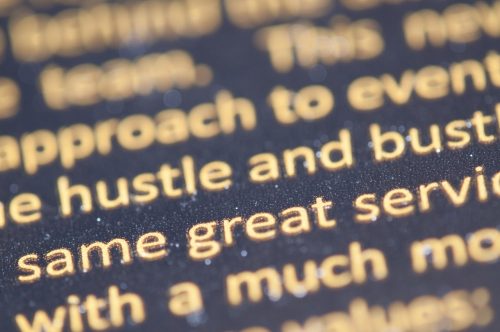
Learning a second language is often perceived as either a thrilling challenge or a frustrating uphill climb—but what does the experience actually feel like for students who go through it? In this post, we will hear from a student who’s been learning French for over a decade and has shared her insights on what it means to live with and learn a new language long-term.
My Language Learning Experience: How It Started
Many of us in language education talk about the cognitive, academic, and career benefits of bilingualism. However, hearing it from a student’s mouth has a different impact. This person has been learning French since childhood and describes its benefits in a fantastic way:
“Learning a second language is an invaluable skill. Firstly, it is a great cognitive exercise, forcing you to use problem-solving and creativity to process and respond to a piece of information.”
Then, she also highlights how acquiring another language reshaped her view of her own native tongue:
“Language learning puts your first language into perspective, making you question the very way you communicate.”
These reflections are not uncommon among long-term learners, and they reveal how deeply language learning can impact someone’s self-perception and worldview.
To put things in perspective, this student’s language journey began at the age of three, when she was enrolled in a French school. While that early exposure may sound ideal, her emotional response to it was far from enthusiastic:
“I remember, especially at the beginning of primary school, being reluctant to actually engage with French—refusing to speak it with my dad, read books, or watch French TV shows.”
This reluctance is a crucial reminder: early exposure doesn’t guarantee instant enthusiasm. It often takes time (and autonomy) for learners to appreciate what they’re being given.
By the time she reached secondary school, her motivation had shifted.At this point, she “had a lot more motivation.” She began actively seeking out French media, reading for pleasure, and watching shows in the target language.
This turning point seems to have been driven less by obligation and more by curiosity and ownership: “I was reading books for fun (not just for school), and I was searching for films and TV shows.”
The Day-to-day: How Is It Now?
Even with more than a decade of experience, the learning journey hasn’t exactly stopped. This student is still refining her skills—and she’s well aware of how demanding that can be:
“Some things that keep me motivated are finishing a novel, getting a good grade on an essay, managing a conversation about a specific topic, noticing a new word incorporated into my vocabulary, or finally being comfortable with a new verb tense.”
Her reflections reveal the double-edged nature of language learning: progress is both visible and elusive. One moment you’re thrilled by a new verb tense finally “clicking,” and the next you’re tripping over pronunciation or clumsy syntax.
She also brings up a deeper, long-term benefit that’s less simple to measure: the rewards of being able to access a “whole other world of knowledge and history through books, news articles, and films,” aside from learning about a completely new way of thinking about the world.
Tips from a Student Who’s Already Been There
When asked what advice she’d give to other learners, her response was refreshingly grounded:
“Having all the basics pretty much nailed down, it’s good to focus on expanding vocabulary, refining grammar points, and having confidence in yourself.”
She also admits that speaking remains a tough area for her; which is something that many other students will find relatable:
“I find speaking particularly challenging, so I make a point to have more conversations—sometimes even talking to myself just to get comfortable with hearing my voice.”
Some of her favorite strategies for advanced learners include:
- Watching films and YouTube videos made for native speakers
- Listening to news and educational podcasts in the target language
- Reading fiction and nonfiction to reinforce spelling and grammar intuitively
- Setting manageable goals, like finishing a book or writing a short story
But if she had to boil down everything to a simple rule, it would be as follows:
“Find the motivation, stay consistent, and remember—it requires focus to see results.”
Final Thoughts: Making the Language Your Own
In the end, this student’s story reminds us that the goal of language learning isn’t just fluency—it’s ownership. The language becomes a tool for connecting with others, expressing your own ideas, and creating exciting academic and work prospects:
“Learning the language has become part of the way I think about the world… it will help me throughout my life to meet and connect with people and open up opportunities.”
Perhaps, the most important takeaway could be this one: “When you start learning a language, it becomes yours to use it whenever and however you want.” Learning a new language gives you freedom and new ways of expressing yourself.
Whether you’re a teacher, a student, or just someone curious about what it’s like to acquire a new language over time, we hope this student’s journey offers some inspiration and insight.
Language learning may be a long road, but it’s one paved with meaning, discovery, and a whole new way of seeing the world. And don’t forget: the key is to keep focused, motivated and constant!
Share
Related Posts

One easy boost to your writing: Using affixal negation to improve your vocabulary
27 February, 2023
Today we talk about an easy way to improve your vocabulary: affixal negation. Writing is […]
Read More ->
My Experience Learning a Second Language: A Student’s Perspective
23 August, 2025
Learning a second language is often perceived as either a thrilling challenge or a frustrating […]
Read More ->
What is a Linguistic Register & Language Register? A quick way to improve your English
26 June, 2023
As speakers we tend to modify the way we speak depending on the context in which we find ourselves. Different environments require different registers.
For example, we do not communicate our anger towards a teacher in class the same way we would towards the referee in a football match.
Read More ->